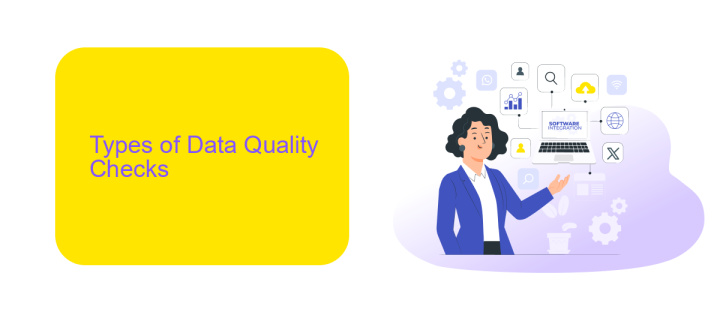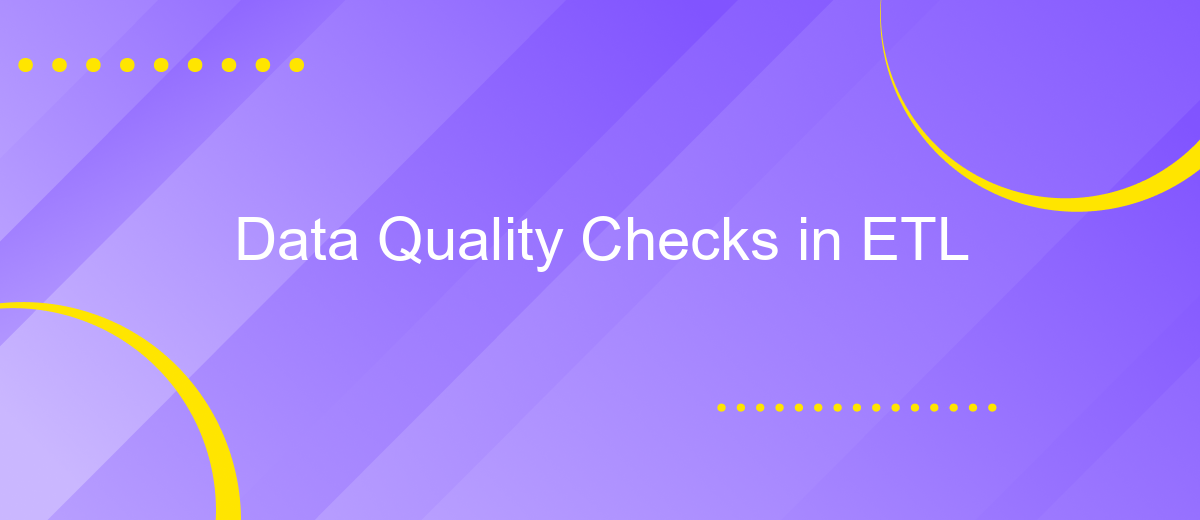Data Quality Checks in ETL
Ensuring data quality is crucial in any ETL (Extract, Transform, Load) process, as it directly impacts decision-making and operational efficiency. This article explores essential data quality checks that should be integrated into ETL workflows to maintain data integrity, accuracy, and consistency. By implementing these checks, organizations can trust their data and gain valuable insights for strategic planning and performance optimization.
Introduction
Data quality is a critical aspect of any ETL (Extract, Transform, Load) process, ensuring that the data being moved and transformed is accurate, complete, and reliable. Without proper data quality checks, businesses risk making decisions based on flawed or incomplete data, which can lead to significant operational and strategic errors.
- Accuracy: Ensuring that the data is correct and free from errors.
- Completeness: Verifying that all necessary data is present.
- Consistency: Ensuring that data is uniform and harmonized across different sources.
- Timeliness: Making sure that the data is up-to-date and available when needed.
- Integrity: Ensuring that data relationships are maintained correctly.
To streamline the integration and monitoring of data quality in ETL processes, tools like ApiX-Drive can be invaluable. ApiX-Drive allows seamless integration between various data sources, automating data transfers and ensuring that quality checks are consistently applied. By leveraging such tools, organizations can maintain high standards of data quality, ultimately supporting better decision-making and operational efficiency.
Types of Data Quality Checks

Data quality checks are crucial in ETL processes to ensure the accuracy and reliability of data. One common type is the completeness check, which ensures that all required data is present and no critical fields are missing. Another essential type is the accuracy check, which verifies that the data values are correct and consistent with predefined rules or reference datasets. These checks help in identifying and rectifying errors early in the data pipeline.
Consistency checks are also vital, ensuring that data remains uniform across different datasets and systems. Uniqueness checks help in identifying duplicate records, which can lead to inconsistencies and errors in data analysis. For integration settings and automation, services like ApiX-Drive can be utilized to streamline the process, ensuring that data from various sources is accurately and consistently integrated. These types of data quality checks collectively enhance the reliability and usability of data, making it a valuable asset for any organization.
Best Practices for Data Quality Checks

Ensuring high data quality in ETL processes is critical for effective decision-making and maintaining data integrity. Implementing best practices can significantly enhance the reliability of your data.
- Define Clear Data Quality Metrics: Establish specific metrics such as accuracy, completeness, consistency, timeliness, and uniqueness to evaluate data quality.
- Automate Data Quality Checks: Use tools and services like ApiX-Drive to automate data validation and monitoring processes, reducing manual errors and increasing efficiency.
- Implement Data Profiling: Regularly profile your data to identify anomalies and patterns that may indicate quality issues.
- Maintain Data Lineage: Track the flow and transformation of data across the ETL pipeline to ensure transparency and traceability.
- Regularly Audit and Cleanse Data: Schedule periodic audits and cleansing routines to address and rectify data quality issues proactively.
By adhering to these best practices, organizations can significantly improve the quality of their data, ensuring that it is reliable, accurate, and ready for analysis. Utilizing integration services like ApiX-Drive can further streamline the process, making data quality management more efficient and effective.
Automating Data Quality Checks

Automating data quality checks in the ETL process is essential for maintaining the integrity and reliability of your data. By automating these checks, you can ensure that data is consistently accurate, complete, and up-to-date, reducing the risk of errors and improving overall data governance.
One effective way to automate data quality checks is by leveraging integration services like ApiX-Drive. These platforms can seamlessly connect various data sources and automate the validation processes, ensuring that data flows smoothly and accurately from one system to another.
- Automated validation of data formats and structures
- Real-time monitoring and alerting for data anomalies
- Scheduled data quality audits and reports
- Seamless integration with multiple data sources and destinations
By implementing automated data quality checks, organizations can significantly reduce manual intervention, minimize the risk of human error, and ensure that their data remains trustworthy. Tools like ApiX-Drive provide a robust framework for these automations, enabling businesses to focus on deriving insights and making data-driven decisions.
Conclusion
Ensuring data quality in ETL processes is paramount for maintaining the integrity and reliability of data-driven decision-making. Implementing robust data quality checks at each stage of the ETL pipeline helps in identifying and correcting errors early, thereby preventing flawed data from propagating through the system. Techniques such as data profiling, validation, and cleansing are essential for maintaining high standards of data quality.
Integrating tools like ApiX-Drive can further enhance the efficiency and effectiveness of these data quality checks. ApiX-Drive offers seamless integration capabilities that automate data transfer and validation processes, reducing manual intervention and the risk of human error. By leveraging such services, organizations can ensure that their ETL processes are both reliable and scalable, ultimately leading to more accurate and actionable business insights.
FAQ
What is Data Quality in the context of ETL?
Why are Data Quality Checks important in ETL processes?
What are some common Data Quality Checks in ETL?
How can automation help in Data Quality Checks?
What should be done if a Data Quality issue is detected during ETL?
Strive to take your business to the next level, achieve your goals faster and more efficiently? Apix-Drive is your reliable assistant for these tasks. An online service and application connector will help you automate key business processes and get rid of the routine. You and your employees will free up time for important core tasks. Try Apix-Drive features for free to see the effectiveness of the online connector for yourself.

